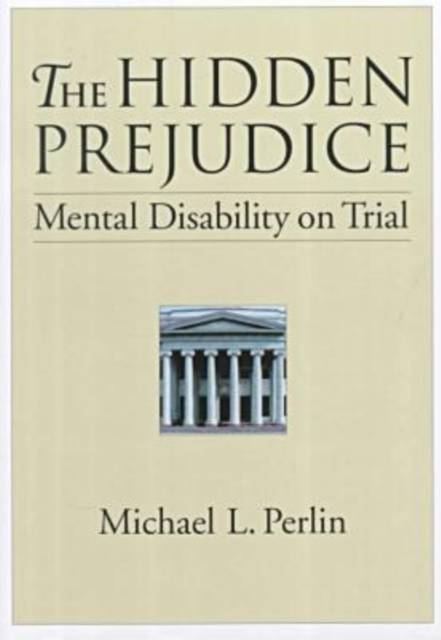
- Afhalen na 1 uur in een winkel met voorraad
- Gratis thuislevering in België vanaf € 30
- Ruim aanbod met 7 miljoen producten
- Afhalen na 1 uur in een winkel met voorraad
- Gratis thuislevering in België vanaf € 30
- Ruim aanbod met 7 miljoen producten
Zoeken
Omschrijving
In The Hidden Prejudice, Michael L. Perlin reveals a pattern of prejudice against mentally disabled individuals that keeps them from receiving equal treatment under the law. Sanism, like racism, is a prejudice against a minority population. This mostly hidden prejudice against mentally ill people has pervaded Western culture throughout history and continues to affect our culture and legal system. Under the pretext of improving society, a judge, lawyer or fact-finder may rationalize turning a blind eye to faulty evidence and render a sanist decision. The pretext for this testimonial dishonesty is that the end result justifies the means. In cases involving the mentally disabled, these results are founded on the prejudicial belief that the mentally disabled are not responsible for or intelligent enough to deserve full rights of citizenship. Perlin argues that these sanist decisions, rationalized on pretextuality, are much more common than most of us are likely to realize.
Specificaties
Betrokkenen
- Auteur(s):
- Uitgeverij:
Inhoud
- Aantal bladzijden:
- 329
- Taal:
- Engels
- Reeks:
Eigenschappen
- Productcode (EAN):
- 9781557986160
- Verschijningsdatum:
- 1/01/2000
- Uitvoering:
- Hardcover
- Formaat:
- Genaaid
- Afmetingen:
- 185 mm x 261 mm
- Gewicht:
- 1002 g

Alleen bij Standaard Boekhandel
+ 70 punten op je klantenkaart van Standaard Boekhandel
Beoordelingen
We publiceren alleen reviews die voldoen aan de voorwaarden voor reviews. Bekijk onze voorwaarden voor reviews.







